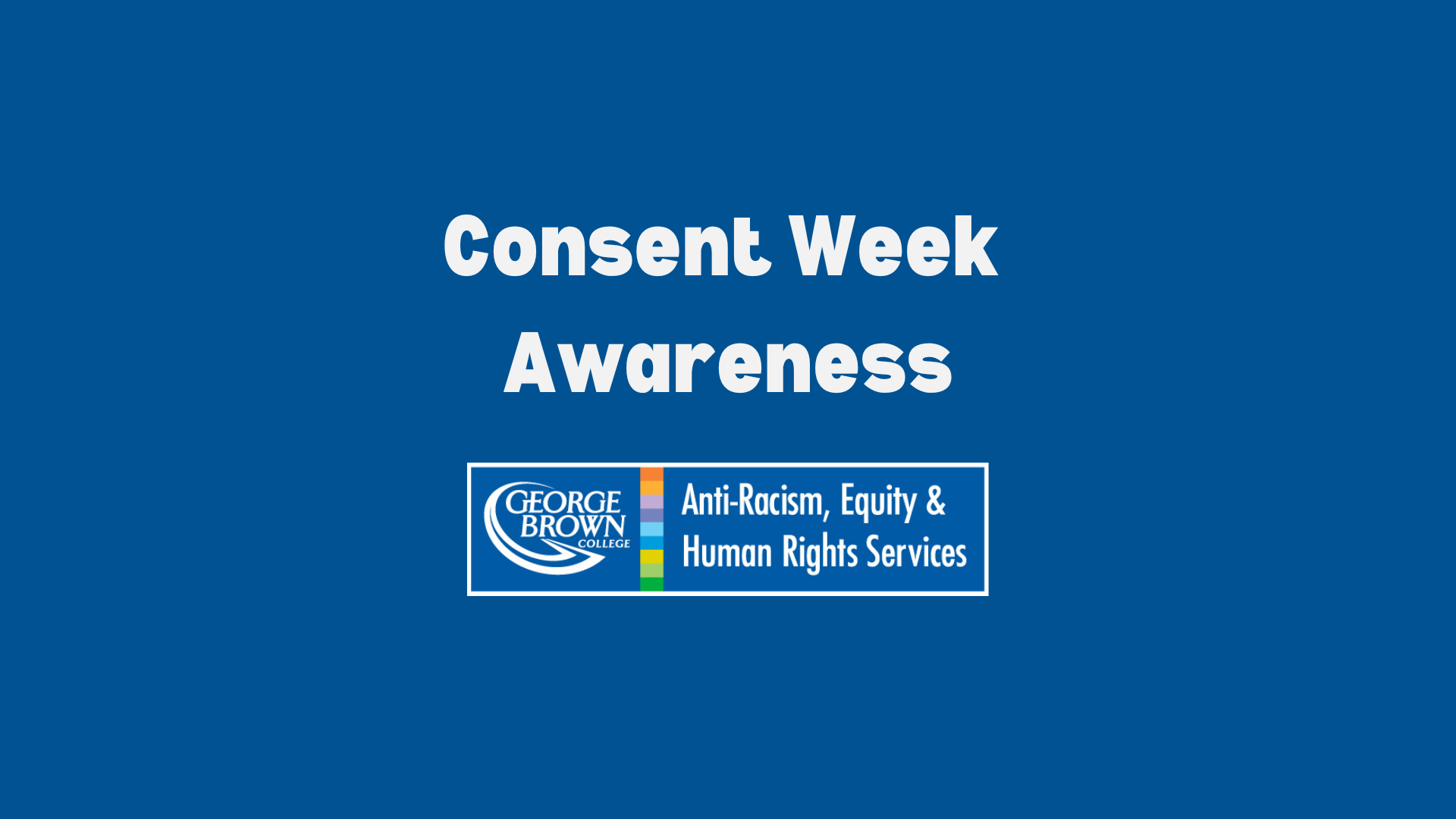What is the Red Zone?
The Red Zone refers to the time between orientation week and Halloween when students are more likely to experience sexual violence on campus.
All members of the George Brown College (GBC) community have a right to study, live and work in a safe environment that is free from sexual violence. Learn more about sexual harassment and sexual violence prevention and support.
Red Zone information, including GBC supports and the Consent Week Awareness event details, are listed below.
Red Zone tips and activities at GBC
Week 1
starting September 4, 2024
What does the Red Zone mean for me?
The beginning of the school year marks many people’s first time away from home. The Red Zone occurs as many are away from their support groups. They are unfamiliar with campus or community supports, may have cultural differences, and may not have received adequate consent education, which could have helped them navigate these new experiences. This often brings about the following:
- Unfamiliarity with on-and off-campus environments Increased frequency of social gatherings with new people (orientation events, socials)
- Limited peer supports
- Limited knowledge of supports and resources
How to minimize the Red Zone:
- Be an active bystander – intervene in situations of harm if you can safely do so
- Disrupt and challenge social norms and language that promote rape culture
- Learn about available supports and resources
- Understand and share with others that we all have a role in preventing sexual violence
- Attend OAREHRS educational sessions and connect with Counselling & Student Well-Being
Week 2
Starting September 12, 2024
Red Flags & Green Flags in Relationships: Does that give you the ‘ick’?
What are some ‘green flags’ in relationships? Here are some examples that you may consider “green flags” in relationships:
- Respects boundaries
- Open, honest, and clear communication
- Good listener
- Supportive
- Takes accountability for their actions
- Does not invade your privacy; not taking photos, videos, or recordings without permission
- Willing to apologize for mistakes and follows through with actions
- Respectful of one's culture, religion, and values
What are red flags in relationships? Here are some examples:
- Controlling behaviours
- Lack of trust
- Does not like you spending time with friends or family
- Extreme jealously
- Financial abuse
- Disregarding boundaries
- Constant criticism
- Making you doubt what you remember
- Repetitive hurtful jokes
- Forwarding your messages/photos to others without consent
Who can I connect with at GBC?
If you’ve had an experience that gave you the ‘icks’ or supported someone through an incident, recently or in the past, that’s reason enough to connect with a gender-based and sexual violence response advisor (SGBVRA) (svra@georgebrown.ca) and Counselling & Student Well-Being (letstalk@georgebrown.ca) for support, information and resources.
Week 3
Starting September 17, 2024
September 17
11 a.m. - 1 p.m.
51 Dockside Dr., main lobby, Waterfront Campus
Join us on September 17 and learn more about consent, supports, resources, and services that GBC provides. Connect with members of the GBC community, from the following areas:
Week 4
Starting September 30, 2024
Cuffing season is upon us!
Dating apps provide wider access to more potential matches, so while there’s a promise of variety and convenience, there’s also a need for caution in how they are used.
Online communication has anonymity rooted in its design. Engagement in online interactions can result in a lack of inhibition and accountability, creating conditions for trolling, catfishing, harassing, stalking and sharing of unwanted sexualized images. OAREHRS plays a role in supporting the ongoing implementation of GBC’S Sexual Harassment & Sexual Violence Policy that identifies online violence as violence. It’s not acceptable, and it can be reported and investigated. Consent matters in digital spaces.
Here are some ways that you can protect yourself online:
- Set clear boundaries and expectations for the relationship; ask about and respect others’ boundaries
- Familiarize yourself with the safety features of any site or app you use
- Communicate with a trusted person when going out on a date (tell two people where you’re going and what time you expect)
- Be aware of the risks when communicating online: trolling, catfishing, the possibility of financial abuse via blackmail (for nudes) or people posing as vulnerable/in need
- Check if your potential partner has other social media accounts that match their dating profile
- Do not share sexual images that others shared with you
Email svra@georgebrown.ca for resources and any questions you may have related to gender-based and sexual violence supports and resources on campus.

